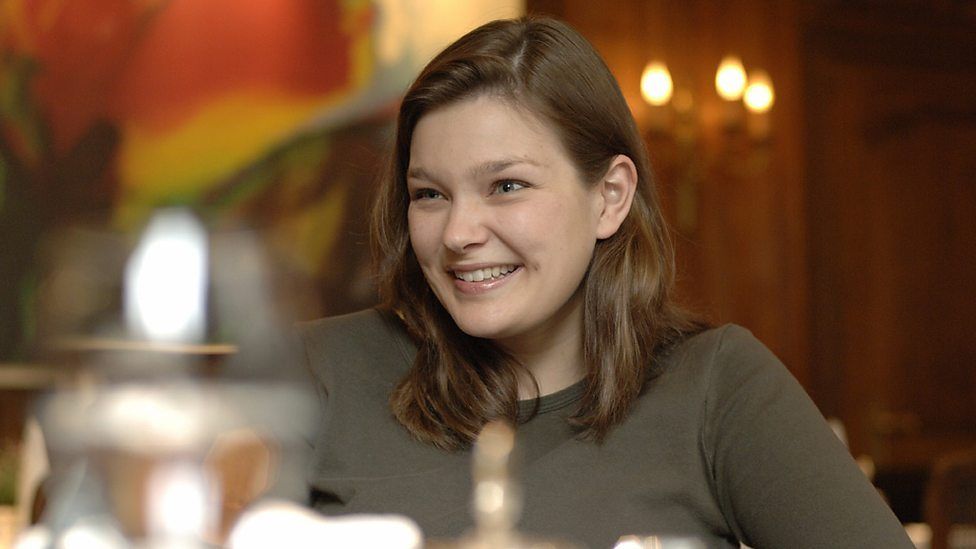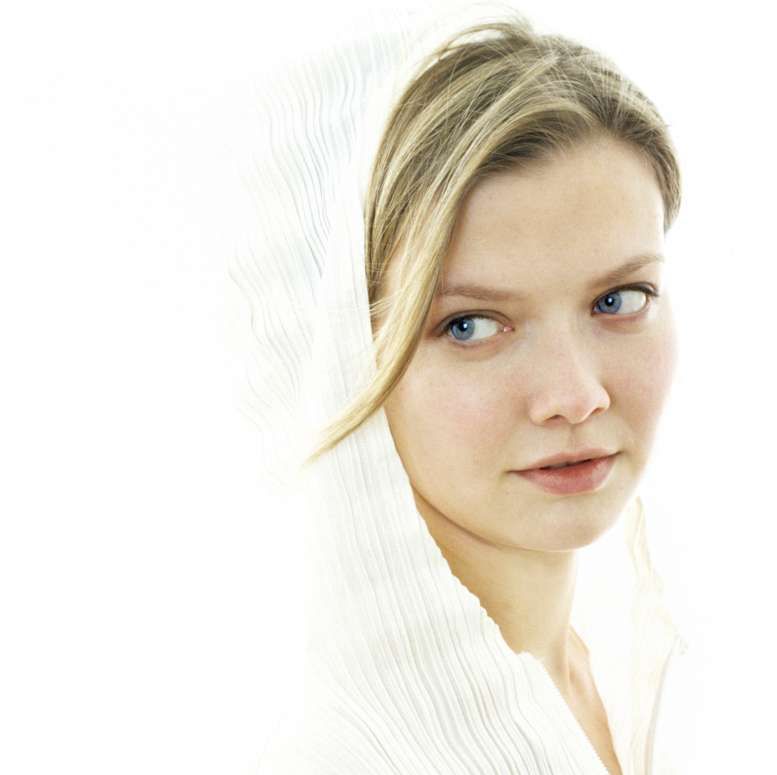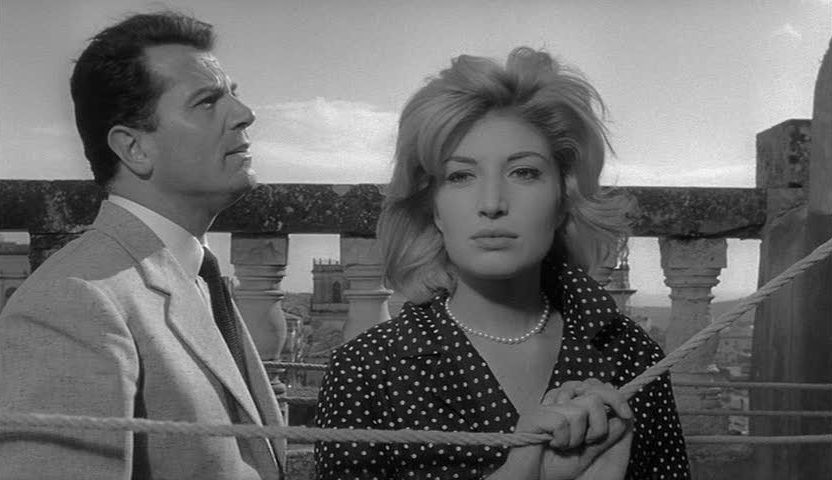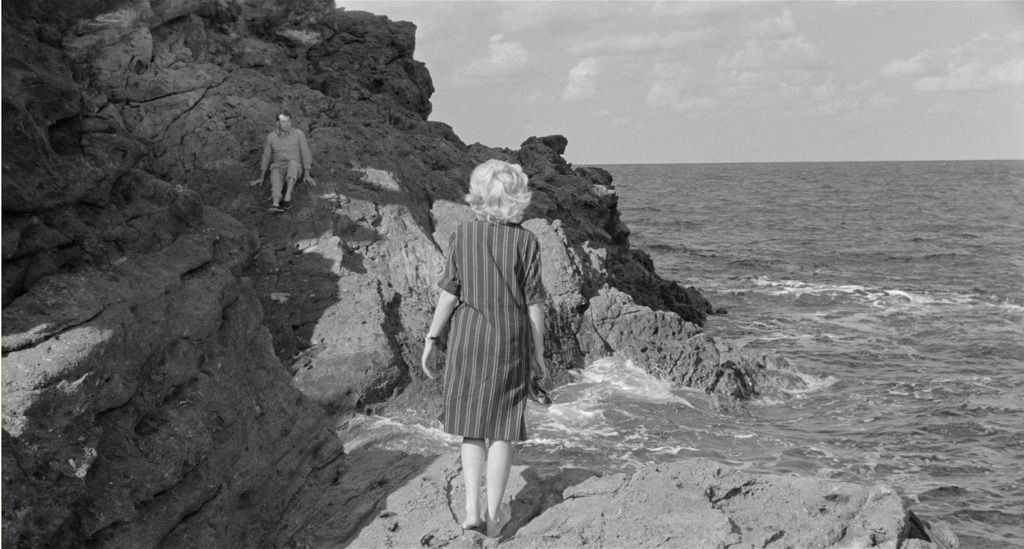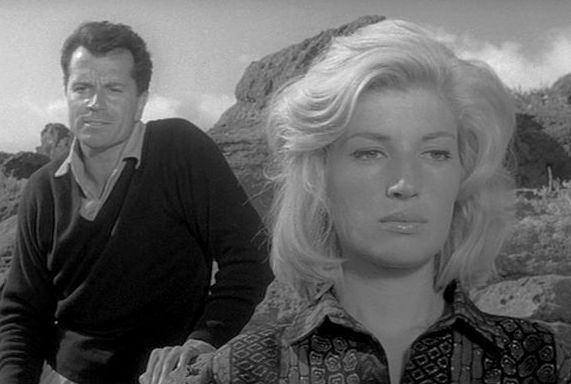Monday, October 05, 2015
Good-bye
Reflecting Light has been reflecting lightly for 10 years, since September 2005. I'm suspending it now -- I say "suspending" because I don't know, sometime I might want to revive it, but it's only fair to readers to acknowledge that the thrill is gone, the amusement is gone, and there's no point keeping the blog on a drip feed of occasional posts.
I've decided on this course for various reasons, but I suppose the main one is that it no longer serves any purpose. Quite a bit of what I wrote some years ago was satire on then-current events, often political. But today's reality is so twisted that it's beyond my ability to satirize. I am hardly alone in thinking Western civilization is in existential peril: we will be lucky to escape being saturated by government control, including of speech and self-expression, or subjugation to the forces of jihad, including jihad by migrant invasion and massive birth rates among the migrants. I can't laugh at such prospects and poking fun at rampant madness seems now like a futile gesture.
Of course there are other subjects besides the geopolitical, and maybe I will (after a suitable respite) take them up as I often have in Reflecting Light, maybe in a new blog. Right now I don't feel up to it.
Is any hope left? Of course: God, love, wisdom. May you experience one or all.
Wednesday, August 26, 2015
Next week's headlines -- today!
9.7.15: Okay, the first headline is wrong. The Triple Crown Winner in the Vatican would never get as close to practical reality as to suggest new taxes, or anything else, to implement His Holiness's desire to help Africans/Muslims outbreed relatively sane populations. Our political and "spiritual" moral exhibitionists don't live in the same world we do. Their world is all about symbolism, you dig? So Il Papa is going to allow, what is it, two "migrants" to live in the Vatican State? Yeah, big flipping deal, Pope, you stupid asshole.
Pope Francis Says All Mankind Responsible for Feeding Africa: "New Taxes Needed"
Fences Can't Stop Migrants
Merkel Reaffirms "No Border Controls" Essential for European Unity
David Cameron Says Calais Crisis "Unacceptable," Proposes More Resettlement Aid for Migrants in U.K. ["David Cameron confirms Britain will act with its 'head and its heart' and accept thousands of refugees" -- The Telegraph, 9/4/15]
Indigenous Population of France to Dwindle to 20 Percent by 2025
GOP Can't Win Without Hispanic Votes, Jeb Bush Says
28,000 Migrants Rescued at Sea, Greek Govt Requisitions All Cruise, Freighter Ships to House Them
Family Values Don't Stop at the Mediterranean: Jeb Bush
Germany Must Welcome 2 Billion Africans, Merkel Says: "Otherwise We're Just Like the Nazis" ["No Limit to Refugees Germany Can Take In" -- The Local, 8/31/15]
Professors Sign Manifesto Calling Camp of the Saints "Racist Book," Demand All Copies Be Destroyed
Pope Francis Says All Mankind Responsible for Feeding Africa: "New Taxes Needed"
Fences Can't Stop Migrants
Merkel Reaffirms "No Border Controls" Essential for European Unity
Indigenous Population of France to Dwindle to 20 Percent by 2025
GOP Can't Win Without Hispanic Votes, Jeb Bush Says
28,000 Migrants Rescued at Sea, Greek Govt Requisitions All Cruise, Freighter Ships to House Them
Family Values Don't Stop at the Mediterranean: Jeb Bush
Germany Must Welcome 2 Billion Africans, Merkel Says: "Otherwise We're Just Like the Nazis" ["No Limit to Refugees Germany Can Take In" -- The Local, 8/31/15]
Professors Sign Manifesto Calling Camp of the Saints "Racist Book," Demand All Copies Be Destroyed
Thursday, August 20, 2015
Hold the applause
This isn't, actually, another post about music except incidentally. It's about audiences.
The other day I was listening to Bill Evans Trio at Shelly's Manne-Hole, recorded at a club performance in 1963. Bill Evans hardly needs a plug from me. Aside from the playing, one thing that struck me about the recording was ... the audience.
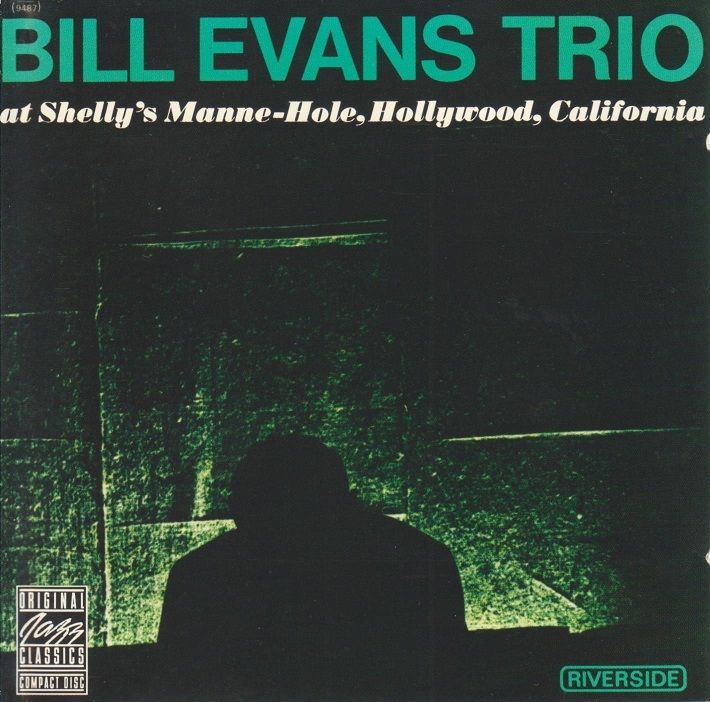 At the end of each number, they applauded. That's all: they applauded. No shouting. No whistling. No "Yeah!"s. No foot stomping.
At the end of each number, they applauded. That's all: they applauded. No shouting. No whistling. No "Yeah!"s. No foot stomping.The bassist, Chuck Israels, did a fine extended solo on "All the Things You Are." (This was a different trio from the one with which Evans had become famous. That earlier line-up had ended with the tragic death in a car accident of the bassist Scott LaFaro.) There were only two or three seconds of mild applause for the solo, which today would have sent the crowd wild.
You might argue that the audience wasn't sophisticated enough to understand what now passes for correct receptivity. I say ish kabibble to that. A trio date in a Los Angeles club would not have had a bunch of rubes for customers. They were more likely some of the keenest listeners around. They expressed their appreciation through treating Evans and his crew as artists, not circus performers.
So they didn't ecstatically applaud Israels's solo. Could it have been because they understood it was a component of the song as a whole, not a personal exhibition?
The behavior of audiences has worsened considerably in my lifetime. Rock music started the breakthrough, or breakdown. ("More! More!") I've been to some great rock concerts, but almost always felt distaste for the shrieks and "participation" of the listeners, if they really were listening that is.
What's going on? I think at the most primitive level concerts are one of the few occasions now where people feel they can express themselves without fear of getting into trouble. In everyday life, they must pre-censor every word. Better to stick to sports and weather. You never know who might be offended. Heavens, they might innocently utter a politically incorrect formulation that would cause some identity freak to screech, "That's racist! Xenophobic! Homophobic! Patriarchal!" etc., etc. But who can criticize you for going over the moon about musicians?
And it's not just rock or jazz performances anymore. Classical concert audiences have their own buffoons. While only a small portion -- so far -- applaud between movements, once the piece is over they go ape. Always, always a standing ovation for a concerto or symphony. A standing ovation used to mean something, that this wasn't just a good performance, but something truly extraordinary. Now the standing is routine.
Classical audiences like to imagine how deeply they appreciate what they heard. Oh, do they appreciate it. They desperately show the world their "sensitivity": "Yeah!" "Bravo!" (They're too ignorant to know that if you must use this word, it should be "Brava!" when directed at a woman.) "Woh!!!!" What dolts they are.
But that's not enough for a writer in Britain's The Telegraph, within living memory a conservative paper, now a mouthpiece for that sad country's cultural Marxist Establishment.
"Are young people scared of the Proms [the annual Promenade concert series] -- or the audience?" asks the headline. Jonathan McAloon writes:
The classical music establishment has never been more desperate to shake its elitist image. The Proms is especially conscious of making space for fresh musical combinations to entice people who might feel alienated by the repertoire: Gabriel Prokofiev’s Concerto for Turntables and Orchestra saw traditional instruments remixed live by DJ Switch in 2011. This year, the late slot opened its arms to dance icon Pete Tong and grime duo Krept & Konan. No one could fault the on-message Proms programmers for their inclusivity. But it isn’t the repertoire that’s forbidding to newcomers: it is the audience.He doesn't give many examples of the alleged "snootiness" except for some traditionalists glaring at audience members applauding inappropriately and making too much noise.
While on the surface there is a pressure to modernise, there is also a deep-seated coldness and snootiness in the attitude of many – though of course by no means all – hardened Prom-goers.
There needs to be an incentive for new audience members to take seats in the stalls. Perhaps a limited number of seats could be reserved for those who have never attended before. Or there could be a special offer for Proms regulars who bring first-timers, thus encouraging the passing on of tradition and knowledge [Huh? Tradition and knowledge are exactly what McAloon despises]: in this way, newcomers could quickly learn how best to avoid annoying the unforgiving killjoys.Of course, the first timers might need to learn something about manners. But that would mean they'd have to, my God, restrain themselves. Oh, the poor dears. Imagine some ancient mossback looking askance at them for whooping, dancing in the aisle, or maybe taking their clothes off and doing cartwheels. If classical music is to have any future (according to this McAloon character) the audience must feel comfortable expressing itself, any time, any way.
I, an unforgiving killjoy, hope McAloon's attitude is mainly limited to degenerate London. But I wouldn't bet on it. Waive, Britannia! Britannia, waive the rules! Those are for snooty old people. Why don't they just f-f-f-ade away?
Sunday, August 09, 2015
Karajan's Bruckner 8th on video
I have long praised Herbert von Karajan's performance of the Bruckner 8th with the Vienna Philharmonic as one of the most sublime recordings ever. Until recently, I had not watched the DVD of him in charge of the same music (made a few years earlier than the studio CD). The DVD was taped at St. Florian in Linz, Austria, with an audience present.
Is there a reason to acquire, or at least watch, the DVD? I am not expert enough to comment on any interpretative differences between the performances, and am not even sure whether they are quite the same version of the symphony (all Bruckner's symphonies except the 6th were revised by the composer and later editors). Musically, I hear no cause to choose one over the other. The sound is surprisingly good on both video and audio discs, though not up to the best to be had today.
At the very least -- yes, the DVD is worth viewing and hearing. Part of the reason is the venue. St. Florian monastery is, like so many Austrian churches and cathedrals, a Baroque visual knockout.
An explosion of color and ornament, yet restrained and balanced. You don't get a lot of close-ups of the performing space in the video disc, but it's there in the background adding beautiful atmosphere. In this monastery Bruckner studied and taught before his date with immortality in Vienna. His human remains are buried here.
Karajan is the most controversial conductor of all time. To over-generalize a bit, listeners love his performances, critics hate them and him. In the U.K. especially, to get your Critics Union card, you must demonstrate a longtime history of Karajan bashing. Their den mother is the noted loon Norman Lebrecht.
The maestro doesn't go in for histrionics on the podium. No making faces à la Bernstein. No jumping and arms raised to the skies. He doesn't jab a finger or his stick at the orchestral section about to make a big statement.
Karajan does use his hands, albeit with restraint. But his face is mask-like, unsmiling. As usual in his later years, he conducts with eyes closed. Watching Karajan in this DVD would probably drive Lebrecht and his colleagues to new heights of loathing. "Look at him, he must be angry at the orchestra! Self-centered impudent snob!"
While you are playing this symphony, nothing else on earth matters. Not me, not the audience, not the decor of the hall. Every cell of your being will concentrate on the music until we get to the final note. Every phrase you draw from your instrument will be a prayer directly to Heaven. You are privileged to be expressing one of the great works of the human soul. In it, Anton Bruckner was striving to reach God. I don't care what you believe or don't believe when you get home; for now, you will do whatever is in your power to realize God in sound. A musician can have no higher calling.
Saturday, August 01, 2015
The Fires of Vesuvius
This is how a history book should be written -- to inform, to encourage the reader to think, and to entertain. Anyone planning to visit Pompeii who wants to get beyond the standard guidebook clichés should read The Fires of Vesuvius beforehand, taking it along on the trip as well. It will be equally riveting for anyone with a serious interest in the world's most famous historical ruins.
The coach tours instruct their captive audiences that Pompeii is an ancient Roman town "frozen in time," a step back into A.D. 79 when it was buried by ashes from the eruption of Mount Vesuvius. Obviously there is some truth in that, but as author Mary Beard shows in various ways, it is by no means entirely true.
For one thing, even motor coach lecturers point out that most of the murals and other artwork decorating the Pompeiian villas are no longer in the ruins, but on display in the Naples archaeological museum. And a damn good thing that is. Few would have survived had they been left in situ.
Beard includes reproductions of several old drawings of ancient wall paintings and sculptures. The originals are now gone or severely faded. Archaeologists, historians, and art lovers mourn them.
When first excavated in the 18th century the buildings were in considerably worse shape than they are now, after much restoration. Damage from an earthquake in 62 had not been completely fixed when Vesuvius erupted, and the volcanic ash collapsed roofs, which in turn destroyed many interior furnishings. Frozen in time, but a time when a lot of the city had been trashed.
We don't know how much of the evidence uncovered was looted or lost after seeing the light for the first time after some 1,800 years. As if that weren't enough, the city was literally bombed by Allied aircraft in 1943! Why? Beard doesn't say. Of course many sites of historic importance were also blown up in the world wars, the most famous being the abbey Monte Cassino (founded by St. Benedict in 529) in the campaign to take Rome. But at least Monte Cassino was a military target, believed occupied by the German army -- although there has been controversy about whether that was so at the time of the destruction. Were there German units touring the temples and brothels of Pompeii?
But such considerations make up only a small part of The Fires of Vesuvius. The author concentrates on what is still available to see now, with a historically informed enthusiasm. She seems to have read everything ever written about Pompeian history by ancient and modern authors, although she says her lists of sources are "inevitably selective"; the impressive bibliography includes works in several languages.
Beard wears her learning lightly. Although writing with enough detail to satisfy the curious non-specialist reader, she's no show-off. Her style avoids academic jargon, using ordinary but evocative language. Here's a sample:
One of the hardest things to recapture [for the modern visitor] is the combination of gaudy brightness and dingy gloom that characterised Pompeian houses of this type. The vast majority were originally painted in vivid colours, which have in many cases now faded to, literally, pale imitations of what they once were: deep reds to washed-out pinks, bright yellows to creamy pastel.External windows, she says, were generally few and small. No wonder we have found so many once-hanging oil lamps.
And it was not just a matter of coloured walls. Though the original ceilings rarely survive, where they have been reconstructed (by piecing together the fallen plasterwork found on the floor) they also are sometimes ornately decorated and coloured in rich hues. ... Like the Pompeian street, many a Pompeian house would have been, in our terms, an assault on the visual senses.
The assault was perhaps mitigated by the general darkness. For while the sunlight would have streamed into the atrium through the open roof, and into the peristyle garden, many other rooms had little or no access to light -- except what they could borrow from those internal sources.
The Fires of Vesuvius examines Pompeii, and a few nearby areas, from many angles -- streets, shops, residences, religious rites, fun and games, politics (even managing to make the last more interesting than you might think). The famous houses of ill repute (probably not scandalous at the time, although sited in their own "red light district" so to speak) and the gladiatorial games are given their due but not emphasized for the sake of sensationalism.
Graffiti seem to have been scrawled all over town, including on the internal pillars of the Basilica in the Forum. Some were electioneering "posters," some sexual boasting, some silly jokes, pretty much like what might appear today on billboards or rest room walls.
Mary Beard is a professor (or whatever the proper term may be) at Newnham College, Cambridge. Newnham, incidentally, is where one of the distinguished early leaders of the Society for Psychical Research, Eleanor Sidgwick, taught.
Beard is a media celebrity in the U.K., where she has written and presented the BBC TV series Meet the Romans.
Friday, July 24, 2015
Asterisks
I was planning to continue my sabbatical from blogging for a while, but I feel like I ought to elaborate a little on a note I have placed on the blogroll. Specifically, there are now asterisks following the links to Sultan Knish (Daniel Greenfield) and Gates of Vienna. Here is the note they refer to:
*Courageous on Islam. But also cowardly PC liberals who refuse to print comments about other threats to civilization (e.g., genocide of whites).The hosts of both those sites would sooner go on a permanent halal diet than hint at the highly disproportionate black crime rate. (Tip o' the lid to Steve Sailer)
Sultan Knish has two topics that he recycles endlessly with variations: Islam and support for Israel. Fine. Lots of bloggers have their specialties. One might wish, however, that he would at least recognize that the worldwide jihad is not an isolated phenomenon. It is one facet of an all-encompassing movement, the Hard Left's drive to make whites ashamed and guilty, the better to subjugate them as quickly as what remains of the rule of law allows. The militant advance of Islam that so disturbs Mr. Knish would not gain the slightest foothold if Western today's white people had the self-confidence and pride of earlier days.
But Mr. Knish will have no parley with the heathens. In my experience, he allows no comments from readers that fail to track his party line and obsessions. Presumably he believes that if only Israel's enemies were wiped out we would have heaven on earth.
Just try sending him a comment about another intifada -- of black criminals preying on whites in huge numbers and the mainstream media blackout (pun intended, as usual) that tries to prevent the word from getting out. Has he ever, ever uttered a peep about white farmers in South Africa tortured, killed, and driven off their land? About the Wichita massacre? About the Knoxville torture-killings of Channon Christian and Christopher Newsom? Not to my knowledge, and I've read him for years. Too bad the villains weren't Muslims and the victims Jews; descriptions of the events would be part of his standard repertory.
Mr. Knish will remain in the "Worth Your Time" category, because he is worth your time. He writes decently and sometimes better than that. It takes guts to call out Muslim outrages in our politically correct, suicidally tolerant culture, especially with Buraq and his mob in power. Too bad his compassion boundaries don't extend past Jews and Israelis. And heaven forbid offending any blacks (or immigrants, unless they're Muslims)!
He's a New Yorker, after all.
Baron Bodissey and his consort, Dymphna, have created in Gates of Vienna a network of essayists and links about many followers of The Prophet (pbuh) leaving a trail of intolerance and slaughter. Baron and Dymphna are brave, too, living out in the sticks somewhere in Virginia where I doubt they can expect much protection. Their anti-jihad activities put them at great risk, and not only from Buraq's U.S. government forces.
But "the Baron," as Dymphna likes to style him, is quite overt about squelching comments that don't fit his agenda. Does that remind you of any other media?
The Baron doesn't just hold comments for approval; he stops them cold with a firewall called Securi WebSite.
He doesn't even know what I was going to say in my comment -- doesn't even know I was trying to send one -- and it's blocked because it's supposed to be spam!What is going on?
You are not allowed to access the requested page. If you are the site owner, please open a ticket in our support page if you think it was caused by an error: https://support.sucuri.net. If you are not the owner of the web site, you can contact us at soc@sucuri.net. Also make sure to include the block details (displayed below), so we can better troubleshoot the error.
- Block reason: SPAM request was blocked.
I'll admit I have a grudge against the Baron. Some years ago, before he started hiding behind a firewall, one of my comments temporarily got through. It included a (reportedly true) story about Bozo, or Bono, or whatever pretentious name the U2 guy travels under.
Bono stood on the stage in front of an audience, doing what I have come to learn is his standard holier-than-thou poseur's act. The lights were dimmed for dramatic effect. Amid dead silence Bono repeatedly slapped his hands together. "Every time I clap my hands, a child in Africa dies," he said solemnly.
Voice from the audience: "Well, then, stop fuckin' doin' it!"
Now I don't normally use or approve of that kind of language. In context, I thought it sounded realistic and made the anecdote funnier.
The Baron did not agree. In an offensively condescending manner, he explained to your poor ignorant writer-editor-blogger than the proper way to have quoted the line would be to have used dashes in the bad word. I should have written "f-----". Home schooled children might have read the spelled-out obscenity! He deleted my comment.
Thank you, sir, I needed that slap! (Hollywood Mummy Museum, circa 1935) Naturally, the Baron's site with its gruesome accounts of beheading, shooting, bombing, crucifying, burying alive, and other imaginative ways of killing infidels must be kept family friendly.
The Baron's latest rules for commenting run to five long paragraphs. This is typical:
Characteristics of unacceptable responses include, but are not limited to: hostility of tone, reliance on insinuation, the employment of heavy sarcasm, condescension, or hectoring. The determination of the presence of any of these traits in a comment is at the sole discretion of this blog’s owners, as is the presence of logical fallacies. ...
The most important thing to remember about the rules is this: The determination of whether any comment is in compliance is at the sole discretion of this blog’s owners. This may seem unfair, but there is a good reason for the tightening of our standards. We are now under close scrutiny by hostile observers who are eager to find a pretext for shutting this blog down.Oh, come off it, Baron. "Include, but are not limited to ... ." "At the sole discretion ... ." Maybe you should study to get a job as a junior law clerk. You seem to have a talent for fine-print contract language.
Why not admit you are afraid (for which no one would criticize you) instead of writing rubbish about how it could get you shut down by "hostile observers"? Do you think Steve Sailer doesn't have "hostile observers"? He says he moderates comments "at whim." That's his total policy for vetting them. But then, Steve doesn't demand a submissive, cultish following, unlike you and a certain politico-religious system.
You can say anything you like, short of libel, in the comments on my blog. I promise not to teach you a lesson about proper decorum, even if I sense a "hostility of tone."
I admire a lot of what you and Dymphna are doing with Gates of Vienna, and respect your willingness to live in some danger for your cause. Even if Gates has had zero success in changing anything so far, it's not your fault. But you too have a one-track mind, and it's a pretty narrow-gauge one. The campaign to make whites feel guilty for breathing aids and abets the jihad and helps destroy civilized life. But no, no, on your turf we mustn't notice. Might bother some of your hostile observers.
Oh, by the way, Baron, in family friendly terms suitable for the home schoolers you imagine are part of your audience: f--- you.
Thursday, June 18, 2015
What I saw (and heard) at the trance mediumship demonstration
I recently attended a four-day conference of the Academy for Spiritual and Consciousness Studies (of which I am a member), held at Chapel Hill, North Carolina. There were so many presenters that some time slots had to be triple-booked, based on loosely defined subject categories. The common denominator was that all involved paranormal phenomena related to spiritual growth, healing, or a mixture of the two.
It would be futile to summarize the whole conference, and even capsule accounts of several presentations would make this post way too long. So I'll concentrate on a single event that made quite an impression, very likely, on just about everyone who witnessed it.
The session -- added to the schedule almost just before the conference and taking place late in the evening of the first full day -- was a demonstration of trance mediumship.
You know what that means, right? A medium is a person who acts as a link between spirits not physically present on earth and a group of observers, often called sitters in a small group or séance. This was not a small assembly, however, but nearly everyone present for the conference. Some mediums transmit messages from spirits while in an otherwise normal state of consciousness; some under hypnosis or self-induced trance; a few while unconscious and oblivious to the here-and-now world.
Since the medium at the ASCS demo is completely open about her ability and has written books about what she does and related topics, there is no reason to conceal her identity. Her name is Suzanne Giesemann.
For a medium, her background is as unlikely as you could make up. Her previous career was in the U.S. Navy, where she held the rank of commander, and was at one time an aide de camp to the Joint Chiefs of Staff. She is married to the captain of a destroyer. It can safely be assumed that she did not go through a Flower Child or New Age unicorns-and-butterflies period. Suzanne acknowledges that if anyone had predicted, years ago, that she would be doing what she is doing these days, she would have thought the idea mad.
Before sitting down to begin the mediumistic segment, she spoke as her normal self about what those of us (including myself) who had never been at one of her inter-world transmissions might expect. The entity she would "bring through" is a guiding spirit known as Sanaya. Actually, Sanaya is said to be a collective consciousness rather than an individual spirit. Adopting a single name for a discarnate crew may be to keep embodied audiences from being distracted by seemingly different entities. Also, we are told, spirits don't attach much importance to names, since they know one another intimately by thought.
Suzanne's manner during her introduction was lively and vivacious, but content aside, no different from many practiced speakers on any subject. She seated herself; some recorded inspirational music (which I thought cloyingly awful, but chacun à son goût) was played; and she then sat quietly for about two minutes, almost motionless except for some deep breaths.
Then Suzanne was no longer there. Someone else had taken her place.
Now that sounds extravagant, maybe ridiculous. Of course I don't mean that her body disappeared and a completely different one inhabited the space. But a new personality took over.
I can't honestly say how much the actual tone of her voice, its timbre, differed from that she'd been using before going into a trance; I was too focused on the transformation of her speech pattern and gestures.
First, in place of the animated manner Suzanne had displayed when "herself," she now spoke slowly and solemnly. Okay, no big deal. Anyone could do that, and I mention it only to fill out the account that follows.
She -- might as well call her Sanaya -- spoke English, but in an extraordinary accent. It was not hard to understand her words, but the accent was unlike anything I've ever heard. It comes as near as matters to being indescribable, but here's a very rough idea. Try to imagine a cross between the pronunciation of an Irish person and an East Indian, with a few additional odd twists.
Now that sounds extravagant, maybe ridiculous. Of course I don't mean that her body disappeared and a completely different one inhabited the space. But a new personality took over.
I can't honestly say how much the actual tone of her voice, its timbre, differed from that she'd been using before going into a trance; I was too focused on the transformation of her speech pattern and gestures.
First, in place of the animated manner Suzanne had displayed when "herself," she now spoke slowly and solemnly. Okay, no big deal. Anyone could do that, and I mention it only to fill out the account that follows.
She -- might as well call her Sanaya -- spoke English, but in an extraordinary accent. It was not hard to understand her words, but the accent was unlike anything I've ever heard. It comes as near as matters to being indescribable, but here's a very rough idea. Try to imagine a cross between the pronunciation of an Irish person and an East Indian, with a few additional odd twists.
I don't think there could be any such blend in our world. Even if a person grew up in India and moved to Ireland at a young age, I doubt that a similar pattern would emerge. For one thing, accents are strongly shaped by the first influence. People raised in the U.S. deep South still talk like southerners even if they've lived in Boston for 40 years, and if the original accent is modified it is only partly so -- you don't get a 50-50 balance.
Mark you, I'm not saying Sanaya spoke in a mixture of Irish and Indian, with some other flavoring rounding it out, just trying to suggest its utter strangeness. So strange that any person in the audience might give a different description.
Beyond the way Sanaya shaped her vowels and consonants, the syllables emphasized were often different from those of someone speaking any variety of English (and often, it seemed, the stress was on the final syllable). I didn't write down any particulars (or take notes at all, being too absorbed in what was happening). But, for a made-up example, the word undoubtedly might have sounded like "und-out-ed-ly."
She spoke with great dignity.
Suzanne's gestures while speaking were large, dramatic, extraverted. Sanaya moved her hands slowly and gracefully, like a ballerina.
Why all this description? What about the content of Sanaya's "talk" and the answers to questions put to her by audience members?
As you can gather, I was too caught up in studying the style to fully pay attention to the content. The meaning I did take in was warm and elevated, but perhaps offered no particular evidence that it came from a disembodied source. In a printed transcript, it might not be unlike much you've already read.
Sanaya replied to audience questions. Suzanne in her warm-up talk had urged us to limit ourselves to inquiries of importance to everyone, not about personal issues, and everyone honored the request. So there was no possibility of "cold reading," or fishing for clues from the questioner. Following the question period, the transformation from Suzanne to Sonaya was reversed, and Suzanne was back with us, indistinguishable from herself earlier in the evening.
If I seem to have attached more importance to style than substance, it was because of looking for clues to establish Sanaya's reality as distinct from Suzanne's.
Skeptics of mediumship often ascribe the phenomenon to a secondary, unconscious part of the medium's own mind that is released in the trance state. That is probably true in some cases. As a general explanation of mediumship, the theory has a number of problems, which I won't go into here because of the lengthy discussion they would need.
With Sanaya, I could not take seriously the idea that Suzanne was putting on an act unconsciously, let alone consciously.
I give a lot of weight to Sanaya's speech mannerisms. Accents are hard even for some good actors to pull off, and as far as I know Suzanne had no theatrical training. A few actors (Meryl Streep for instance) are well known for their ability to put a different background on their tongue. With a couple of hours of practice, I'm sure Laurence Olivier could have convinced you he had spent his life in Brooklyn. John Gielgud, I don't think so.
But there we're talking about "normal" accents, which people actually speak, and that can be studied via recordings and with the aid of voice coaches. It's hard to conceive of anyone inventing an accent and using it consistently for even the 10 or 15 minutes Sanaya was "onstage." (There were no slips into conventional pronunciation, and I was listening carefully for them.)
Even given the highly unlikely possibility that someone could memorize an exotic speech with exotic gestures, the fact that Sanaya was responsive -- answering questions she could not have anticipated, and in the same mode -- puts paid to any suspicion of fakery, in my view.
So what to conclude from this demonstration? Well, it doesn't prove that dematerialized spirits can communicate with us on the earth plane through certain people with specialized abilities. But the history of science shows that nothing can be finally proven outside the realm of mathematics. For psychical research questions, only the preponderance of evidence as a whole offers tentative answers. For me, Sanaya counts strongly in aid of the spirit hypothesis.
Anyway, I'm glad to have "met" Sanaya. And thank you, Suzanne Giesemann, for generously lending your time to enable us to see a little beyond the veil.
Wednesday, June 03, 2015
Classical beauty, edition 3
You understand, in my appreciation of these lasses my point is that beauty is beauty, whether in performance or the performer's looks, and especially inspiring when the two are combined. It's probably quixotic to imagine, but maybe someone of Generation Y or Generation Z or whatever we're up to will look at this and note that classical musicians can be glamourous, more even than the latest hyped pop stars.
Argentine pianist Ingrid Fliter (above). I have an album in which she plays Chopin, including the Sonata no. 3, Ballade no. 4, and other works of the Romantic master. There is no doubt that she commands the keyboard. Moments of exaltation can be found here. Still, there is something slightly distant and objective that seems wrong for the album's repertory. This is Chopin: what happened to the poetry?
Violinist Janine Jansen. Words will not assemble themselves. Here she is in concert:
Moving right along, next up is Alina Ibragimova, another cracking violinist. I have one of the recordings she made with her frequent musical partner, pianist Cédric Tiberghien. It's a live performance from London's Wigmore Hall, on the Hall's own label.
The violinist par excellence, Chloë Hanslip, has introduced some of us to obscure composers such as Antonio Bazzini and Benjamin Godard:
Pianist Simone Dinnerstein returns for another curtain call. She and cellist Zuill Bailey have collaborated on a complete set of Beethoven's sonatas. Lots of first-class musicians (e.g., Richter and Rostropovich) have had a go at these; Dinnerstein and Bailey are among the most compelling I've heard. And they're recorded in truthful Telarc sound.
It's a tradition by now to close these Classical Beauty posts with Hilary Hahn. In her recent photos, she has lost some of the earlier sensuous pixie look; in her mid-30s, she is very much the woman, and still exceptional.
Pianist Simone Dinnerstein returns for another curtain call. She and cellist Zuill Bailey have collaborated on a complete set of Beethoven's sonatas. Lots of first-class musicians (e.g., Richter and Rostropovich) have had a go at these; Dinnerstein and Bailey are among the most compelling I've heard. And they're recorded in truthful Telarc sound.
It's a tradition by now to close these Classical Beauty posts with Hilary Hahn. In her recent photos, she has lost some of the earlier sensuous pixie look; in her mid-30s, she is very much the woman, and still exceptional.
* * * * *
I will include no new pictures of Yuja Wang. She is starting to annoy me. Not musically -- I treasure her Rachmaninov disc with the Mahler Chamber Orchestra luminously conducted by the late Claudio Abbado. But those short, tight skirts and plunging necklines border on bad taste. Yes, with so many excellent musicians around, a young player is tempted to go to extremes to stand out from the crowd. But Wang is a recognized star these days. If she wants to pose for cheesecake shots as a "civilian," outside the classical milieu, that would perhaps add to the sum of human happiness. On the stage of a concert hall, the tart look is unbecoming.
Disclaimer: All opinions expressed are solely those of the author and for entertainment purposes only. He is not a Certified Classical Beauty Adviser (CCBA™). Please do your own due diligence and consult your qualified adviser before any appreciation of the persons mentioned. This post has not been approved by the Anti-Sexism Unit of the Federal Speech Control Department.
Disclaimer: All opinions expressed are solely those of the author and for entertainment purposes only. He is not a Certified Classical Beauty Adviser (CCBA™). Please do your own due diligence and consult your qualified adviser before any appreciation of the persons mentioned. This post has not been approved by the Anti-Sexism Unit of the Federal Speech Control Department.
Sunday, May 17, 2015
All along the Apple Watchtower
I've got a mind to give up living
And go shopping instead
I've got a mind to give up living
And go shopping instead
Pick me up a tombstone
And be pronounced dead
And go shopping instead
I've got a mind to give up living
And go shopping instead
Pick me up a tombstone
And be pronounced dead
— Variously attributed; performed by the Paul Butterfield Blues Band
Living is uncool. What matters now, for those who can or imagine they can afford it, is showing your up-to-the-second personal technology.
Steve Jobs's last words were said to be, "Oh wow! Oh wow! Oh wow!" Not quite as elegant as Goethe's "More light," but perhaps his first glimpse into the life following death. I don't think he was looking down the tunnel to the Apple Watch.
No doubt, the Apple Watch — which has the world gaga — is capable of wonders, practical and pointless. I haven't bothered to learn all about it. Yours truly (as people used to sign letters), but I won't be yours in Apple blossom time. There seem to be three basic models, keyed to your socio-economic class, and loads of designs. Doubtless there are a billion aps, and it can do everything but spit nickels. Watch Ben-Hur on your wrist!
Throw in a Tesla to your instrumentarium and you're in the Elysian Fields without even bothering to cross over like Steve Jobs.
"The Apple Watch Will Create Its Own Market Based On Emotional Needs," writes a commentator who styles himself Clinically Sound Investor on Seeking Alpha. He's right.
The Apple Watch pre-orders totaled over $600 million. One thing people can take for granted and Apple doesn't have a problem with is heightened public awareness. The TV spots, the live demos at Apple Stores since April 24, as well as Guided Tours online, all have people thinking about the Watch even before they develop an interest. Once the Watch is out on the street and people see them on others, if there was thought of a "lack" before, it will feel more real. ...
The ability to send virtual taps, heartbeats, and drawings through Digital Touch actively reminds owners, "Great, I have the Watch," for staying connected to their community. ... For younger users, who grew up in an age where online contact with their social network is as pervasive as face-to-face time with their friends, the demand for the Watch may be even greater. The best way to stay connected is through instant sharing of emotions and ideas, which is more conveniently done with the Watch's texting and iMessage capabilities than finding your phone.In other words, "the Watch" enables people (especially the young, whom many from older generations now emulate) to find virtual meaning in their lives, often without interacting in "meat space."
You can argue that in principle there's nothing about wearing an Apple Watch that differs from the jewelry and decorative clothes that women and men have worn since the beginning of history (and probably before): it's a high-tech version of an aborigine's bone necklace. Right enough, it's human to want to be stylish, and if a gyroscopic sundial could have been made small enough, Egyptians of the XVIII Dynasty might have worn them or endowed their animal-headed gods with them.
I myself used to collect watches of eccentric or unusual appearance. They included a Sekonda whose face noted in microscopic letters, "Made in the U.S.S.R." My timepieces were — admittedly — intended to attract attention and show how hip I was. I still have them but no longer wear a watch, except occasionally on trips, because there are readouts all around on computers, car dashboards, TV screens, even electric ranges.
My watches were cheap, though, and nobody would have assumed that I'd paid any more for one than for a Timex. Style aside, all they did was tell the hour and minute. You even had to adjust them if you went to a different time zone.
There's a different and, to me, distasteful vibe about the Apple Watch. To judge from photos, some of the variations might be visually attractive, but the bragging rights they give the owner cross a line that ought not to be crossed. It's impossible to define where that line is exactly, but it has something to do with the biblical admonition that where your treasure is, there your heart will be also.
Traditional Christianity doesn't much appeal to me, but it deserves credit for ceaseless analysis of human motives and the inner drives that can seize the soul and turn it away from the moral and spiritual. The Seven Deadly Sins are deadly precisely because they are tempting and often pleasurable. If we must derive and then satisfy an "emotional need" from a fancy science-fiction watch, we will deserve what we get.
Sunday, May 10, 2015
It's only sleeping
... I think.
It's getting on for a month since the last post. Partly your blogger has been overtaxed (and not only by the gangsters in Washington) and under-energized. Reflecting Light hasn't been reflecting much light or anything else lately. It is going through something of an identity crisis.
In its nearly decade-long existence, the blog has devoted a lot of electrons to lampooning politicians and politically correct lunacy. Mostly that's been fun for me and, I hope, for readers. But it implicitly assumed that in some small way, such posts might warn of a road washed out ahead.
But my efforts -- and those of hundreds of bloggers more knowledgeable and influential than I -- have had, as far as I can see, zero payoff. Let's be honest with ourselves. The Left has won the political game not only in the U.S. but every major country in what was once called, with some validity, the Free World.
You've read about the two Muslim assassins who tried to put bullets through who knows how many people for daring to attend an event satirizing The Prophet. Half the commentariat blames the trouble on Pamela Geller, its organizer, not the would-be killers or their ideology. We read that before the recent election in the U.K., the candidate of the Labour Party said that if the voters in their wisdom installed him at 10 Downing, his government would outlaw Islamophobia.
"We are going to make it an aggravated crime. We are going to make sure it is marked on people’s records with the police to make sure they root out Islamophobia as a hate crime,” [Labour leader] Miliband told the Editor of The Muslim News, Ahmed J Versi in a wide ranging exclusive interview.While they're at it, the Labour Party would "strengthen the law on disability, homophobic, and transphobic hate crime." That is, thought crimes and speech crimes by anyone who offends a protected group or member thereof.
“We are going to change the law on this so we make it absolutely clear of our abhorrence of hate crime and Islamophobia. It will be the first time that the police will record Islamophobic attacks right across the country,” he said.
I have no doubt the empty vessel occupying the White House would love to do the same. Maybe he'll give it a shot via executive order between now and when he can fully devote himself to speechmaking and golf in January 2017. It matters not if lots of people criticize or complain; they are powerless versus the strange oligarchy of cultural Marxists and big corporations that actually do the heavy lifting.
Anybody who still belongs to The Resistance has my blessing, but to me it's a lost cause and I'm too old to waste time on lost causes. There are other important (or at least interesting) things, some maybe even more important than politics. When and if Reflecting Light wakes up, those are what it will mainly reflect on.
Wednesday, April 15, 2015
L'Avventura
Of the two Italian filmmakers who came to prominence in the '60s -- Federico Fellini and Michelangelo Antonioni -- the former seems to be today's popular and critical favorite. Antonioni has mostly been relegated to the status of "important" (a kiss of death) or the product of his time.
Criterion, the company that does superb restorations of older films, has worked their magic on Antonioni's L'Avventura (1961). The movie is now on Blu-ray disc in a dazzling transfer. The image is crisper than you would have experienced it in most theaters when it was initially released, and the sound has probably been upgraded as well.
If you've only seen L'Avventura in ill-focused, scratchy prints but found it worthwhile, you owe it to yourself to watch the Criterion Blu-ray version. The musical score doesn't strike me as particularly important in this work, but the black-and-white photography is a celebration of tones. And you get a good impression of Sicily more than half a century ago.
The knock on L'Avventura is that it's too long and under-dramatized. Long it is, about two-and-a-half hours, but except for a scene or two I found it captivating. The editing is more leisurely than is the norm nowadays, but the film is dramatic in its own idiosyncratic way. (And at least you can follow the story, which is more than can be said for many contemporary movies.)
The external action isn't particularly complicated, although what is going on beneath the surface is sometimes hard to fathom. A group of rich Romans go on a yacht trip in the sea off Sicily. Among them are Sandro (Gabriele Ferzetti); his maybe-fiancée Anna (Lea Massari); and Anna's close friend, Claudia (Monica Vitti). They explore a volcanic island. When it's time to leave, Anna has gone missing. After calling in the coast guard to no avail, all except Sandro and Claudia return to Sicily, and they soon follow.
The rest of the picture focuses almost exclusively on Sandro and Claudia. He seems unconcerned about Anna, but strongly attracted to Claudia. At first Claudia resists Sandro's attentions, then discovers a passion for her missing friend's suitor.
The movie is somewhat disjointed, like a puzzle where certain pieces don't fit. For instance, the transition between Claudia's rejection and acceptance of Sandro is abrupt. Maybe she has fancied him all along, but I didn't notice any signs of it. Whatever isn't entirely clear, though, this is a movie about grown-ups with grown-up emotions, not the adolescents of all ages that predominate in American films today.
Antonioni at this point in his cinematic career had his own style, far from that of the visionary Fellini. Antonioni was more subtle, but most of his film is beautifully composed without calling undue attention its its director. L'Avventura is replete with knowingly framed shots and backgrounds that offer value added.
(I suspect this artist envied the greater attention given to Fellini, and later let himself be "influenced," partly successfully in Blow-Up, disastrously in Zabriskie Point. His last major film, The Passenger, was a recovery that played to his strengths.)
The central characters are strongly acted. And Monica Vitti -- oh, my. An almond-eyed Byzantine Madonna with wild locks of golden hair.
Sunday, April 12, 2015
Constant non-comment
My counter doesn't indicate any notable drop-off in readership.
How come hardly any comments anymore? Have I become too uncontroversial? I'm not trying to stir up argument, but it would be nice to get a few reactions.
Regular programming will resume shortly.
Subscribe to:
Comments (Atom)
















